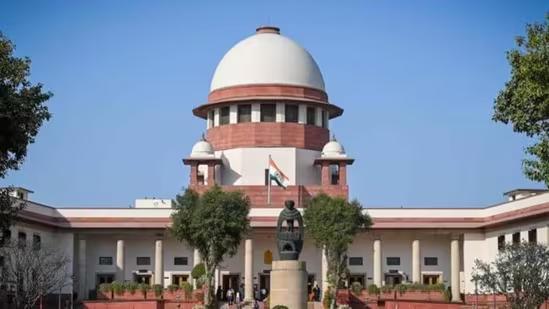
Court Can’t Grant Assent to Bills, Only Gov & Prez Can: Maha to SC
In a significant development, the Maharashtra government has argued in the Supreme Court that courts cannot accord assent to bills and only the Governor and President have the power to do so. This submission was made during the hearing of a presidential reference on whether the court can impose timelines for Governor and President to deal with bills passed by state assemblies.
The presidential reference was made by the Centre to the Supreme Court to seek its opinion on whether the court can direct the Governor and President to exercise their powers within a reasonable time frame. The Centre had sought the court’s opinion on the issue after a controversy erupted in Maharashtra over the delay by the Governor in giving assent to certain bills passed by the state assembly.
During the hearing, Senior Advocate Harish Salve, representing the Maharashtra government, argued that the court cannot grant assent to bills and that it is the exclusive domain of the Governor and President. He pointed out that the Constitution has clearly defined the powers of the Governor and President in relation to bills passed by the state assemblies and that the court cannot usurp these powers.
Salve also argued that the court’s role is limited to interpreting the Constitution and ensuring that the laws are in accordance with the Constitution. He contended that the court cannot impose timelines on the Governor and President to deal with bills, as this would amount to interfering with the executive’s powers.
The Maharashtra government’s argument is based on the Constitution’s Article 111, which states that the President shall give his assent to a bill passed by both Houses of Parliament, subject to certain conditions. Similarly, Article 200 of the Constitution provides that the Governor of a state shall give his assent to a bill passed by the state legislature.
The Maharashtra government’s submission has significant implications for the relationship between the judiciary, executive, and legislature. If the court is allowed to impose timelines on the Governor and President to deal with bills, it could lead to a erosion of the executive’s powers and undermine the Constitution’s separation of powers.
The Centre’s move to seek the court’s opinion on the issue was seen as a attempt to address the controversy over the delay by the Governor in giving assent to certain bills passed by the state assembly. The delay had led to a standoff between the state government and the opposition parties, which had accused the Governor of being partisan and delaying the passage of important legislation.
The controversy had also led to a legal battle in the Bombay High Court, which had issued an interim order directing the Governor to take a decision on the bills within a specified time frame. However, the Maharashtra government had appealed against the order, arguing that the court had no powers to impose timelines on the Governor.
The Supreme Court’s verdict in the presidential reference is likely to have far-reaching implications for the functioning of the government and the relationship between the judiciary, executive, and legislature. While the court’s role is important in ensuring that the laws are in accordance with the Constitution, it is also crucial to ensure that the executive’s powers are not usurped and that the Constitution’s separation of powers is maintained.
In conclusion, the Maharashtra government’s argument that courts cannot grant assent to bills and that only the Governor and President have the power to do so is a significant development in the ongoing controversy over the delay by the Governor in giving assent to certain bills passed by the state assembly. The Supreme Court’s verdict on the presidential reference will have significant implications for the functioning of the government and the relationship between the judiciary, executive, and legislature.






